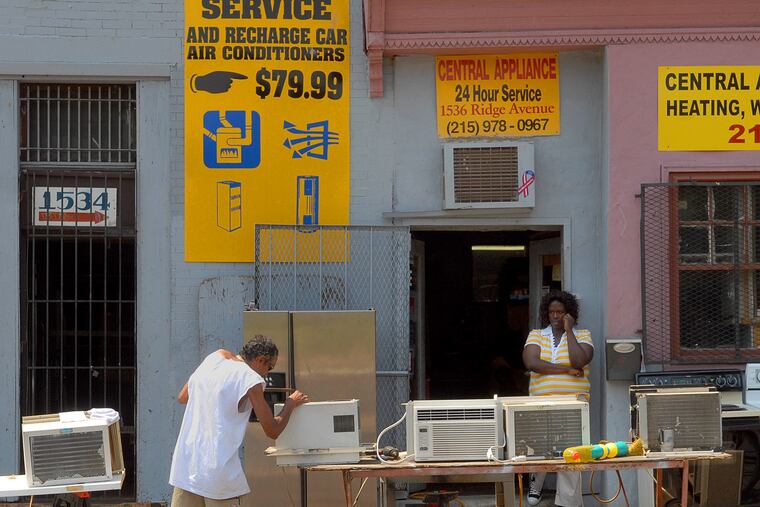Climate change is raising energy bills, especially among those who can least afford it | Opinion
Some of our poorest citizens live in the hottest neighborhoods. The Philadelphia Green Capital Corp. is working to help residents and businesses go green affordably.

According to a 2015 survey, more than 50% of all Black households and 30% of renters in the Mid-Atlantic region faced energy insecurity each year. This means that thousands of Philadelphians went without food or basic resources so they could cover their energy bills. Since COVID-19, the problem has likely gotten even worse.
The neighborhoods experiencing energy insecurity are also the most vulnerable to the effects of climate change. For example, in Hunting Park, a low-income community of color, it can be 22 degrees hotter than higher-income neighborhoods of the city on a hot summer day. Not only are these inequalities a severe health risk, but they also lead to significant disparities in energy costs.
The Philadelphia Climate Action Playbook, a composition of climate plans the city released earlier this year, outlines a future of increased extreme heat, heavy rain, and escalating flooding events along the Schuylkill and Delaware Rivers, as well as near the airport, in Eastwick, in Manayunk, and other areas. It’s already happening.
There are many reasons to be concerned about climate change, not the least of which is that severe weather events can trigger extra costs for the city and its citizens. The more climate change continues unchecked, the more people will see the effects on their energy bills — particularly those who can least afford it.
“The more climate change continues unchecked, the more people will see the effects on their energy bills — particularly those who can least afford it.”
In September, Philadelphia gained a new tool to help finance clean energy projects that can combat climate change: the Philadelphia Green Capital Corp. (PGCC). PGCC is a nonprofit “green bank” affiliate of the Philadelphia Energy Authority (PEA), a municipal authority designed to support energy projects and grow the clean energy economy in the city. Since 2016, PEA has created over 1,700 jobs and spurred over $167 million of clean energy investments in Philadelphia. PGCC will scale and amplify PEA’s work by providing financing solutions that focus mainly on areas that have not received investment, such as low-income homes, small- and medium-sized businesses, nonprofits, and multifamily buildings. We also work with PEA’s Solarize Philly program to make solar affordable and accessible to all residents and businesses in Philadelphia.
The creation of a financial platform dedicated to clean energy (aka a green bank) for Philadelphia is inspired by the work of 20-plus other green banks around the country that have catalyzed over $7 billion of investment since 2011. These specialty finance institutions are not like banks where you deposit money, and usually are not in the business of grantmaking. Instead, they focus on designing innovative financing products to expand clean energy markets and attract new sources of private, public, and philanthropic capital to the clean energy economy.
» READ MORE: Philly’s summer temps have risen 3 degrees since 1970 — and nights have gotten even warmer
Currently, efforts to scale the green bank model nationwide have made their way to President Joe Biden’s Build Back Better proposal, which could infuse billions into these public-private initiatives and further jump-start the essential clean energy work needed for our homes and businesses. According to the proposal, 40% of the benefits will be targeted to underresourced communities that have been disproportionately impacted by climate change. We could certainly put those funds to use in our city to build a cleaner, more resilient, and equitable Philadelphia.
But we don’t have to wait for action at the federal level. With the creation of PGCC, Philadelphia has the tools to help residents, businesses, developers, and nonprofits go green today.
Maryrose Myrtetus is the executive director of PGCC. Clara Lyle is a master of city and regional planning candidate at Penn’s Weitzman School of Design focusing on climate and energy policy. She is an intern at PGCC.